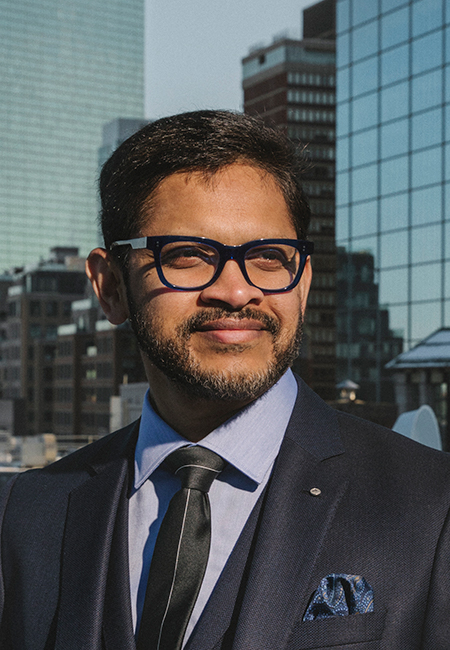The Penn GSE Magazine interviewed me in 2020 about how the BAC innovated in response to the pandemic:
Adapting in Times of Change: Penn GSE Alumni Shape Education’s Future
October 22, 2020

Despite the challenges of current times, Mahesh Daas, GRD’13, president of Boston Architectural College (BAC), sees opportunity for higher education innovation in both the need for social justice and the impact of the coronavirus.
Appointed to his current role in 2019, Dr. Daas has presided over a mission that has only increased in relevance—in his words, to “provide diverse communities access to professions that are acutely in need of better inclusion and diversification.” Consider, he says, that only 2 percent of licensed architects are African American, and a fraction of a percentage point are African American women. “That is how anemic the professions are in terms of diversity, equity, and inclusion.”
The 675-student BAC largely meets its goal, Daas says, through an education model in which students work a practicum from 8 a.m. to 3 p.m. at one of eighty-one partner firms and then attend classes, sometimes until 10 p.m., getting assessed on both fieldwork and academics. Students (Daas reports an average age of 28.5 years and 45.8 percent people of color) earn while they learn, which can make college more affordable, and an open admissions policy helps reduce barriers of access.
“We were talking about social justice well before all these issues became national and international discourses,” he says. “That is why our mission is what it is.”
“When the protests began to happen, or even when the pandemic broke out, in a way our vision and strategy aligned with what we saw emerging. We just had to accelerate, invest more.” —Mahesh Daas, GRD’13Click to Tweet
When COVID-19 struck, the college already had 43 percent of its programs online, which made for an easier transition, he says, noting that BAC also has the first primarily online master’s program to earn accreditation. Most students continued their practicum placements remotely, but those laid off were assigned to community-based projects, such as developing site proposals.
Soon after his arrival, Daas began a strategic plan, often seeking advice from his cohort in Penn GSE’s Executive Doctorate in Higher Education Management program. The plan includes social justice, which encompasses diversity, equity, and inclusion, as one of six tenets of BAC’s “Vision Hexagon.” He envisions social justice initiatives cutting across all aspects of the college—the curriculum, extracurricular activities, research, and institutional structures—supported by the resources to make a difference.
“When the protests began to happen, or even when the pandemic broke out, in a way our vision and strategy aligned with what we saw emerging,” he says. “We just had to accelerate, invest more.”
Daas also has emphasized nonviolent communication developed by psychologist Marshall Rosenberg as a way to improve organizational culture, implementing faculty and staff workshops on the approach that puts empathy at its center.
“The world has shifted,” he says. “Our way through these times is through innovation, and not by managing the crisis to go back to models and paradigms from before the pandemic.”
This article appeared in the Fall 2020 issue of The Penn GSE Magazine.
